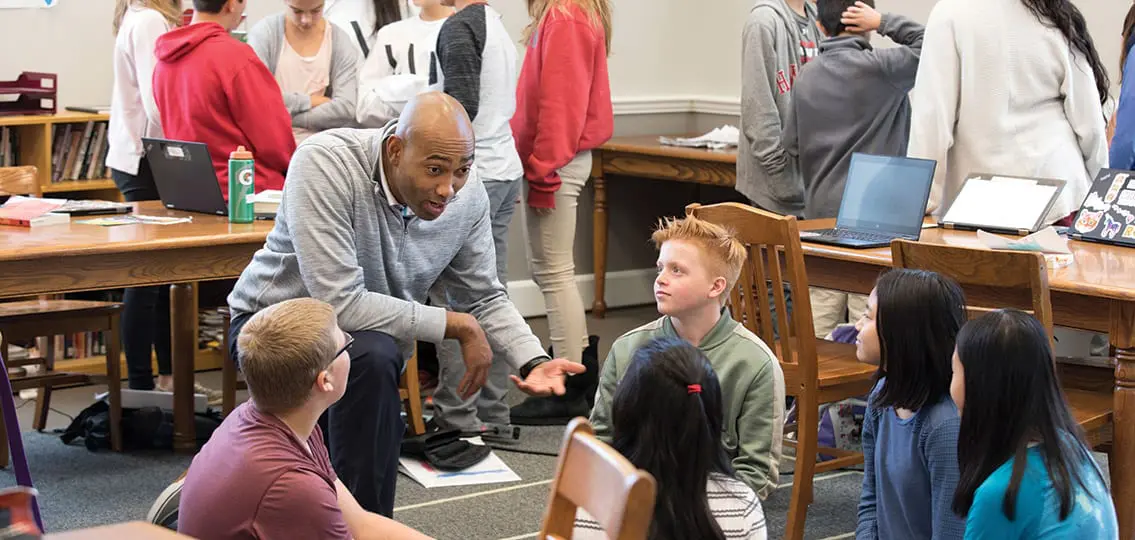By the middle of my younger son’s eighth grade year, I stopped checking his grades. His report cards remained unopened on the dining room table. This wasn’t because I didn’t care or because I already knew what was in there.
It’s because I finally realized that the more I fretted and pressed him about his grades, the less he was able to take ownership over his own academic performance.

This was a bold move for me, and a decision I didn’t make lightly. I already knew that some level of allowing my kids to fail was essential to their development. Jessica Lahey’s book The Gift of Failure came out the year my sons were in fourth and sixth grades, and it was a revelation.
You mean I shouldn’t ferry a forgotten lunchbox to school? Micromanage school projects to ensure they measure up? The concept of allowing my kids to make mistakes—and learn from them—was both liberating and terrifying.
Resisting the Urge to Swoop in and Help
Rescuing is NOT in your kid’s best interests. “Resist the urge to save your kid,” Lahey told me in an interview. “Remember that saving the kid sometimes makes the mom feel better than the kid. Are you doing this for Good Mommy Points or for their best interests?”
As my younger boy slipped from early adolescence into teenagerhood, I could see how my eager efforts to “help” had caused him to push me away in a much-needed bid for independence. And after several semesters of parenting failures of my own, I decided to hand the reins over to my more-than-competent kid, with the caveat that I would help him make sure he had the time and space to complete all his work, and that any weekend social plans were contingent upon having all his work turned in.
“In order to do well, kids need to feel three things: connectedness, autonomy, and competence,” says William Stixrud, a clinical psychologist and co-author of The Self-Driven Child. “When parents jump in, the message they send their kid is you need me to manage your life, which deprives them of the latter two.”
Author and school consultant Ana Homayoun, who has written three books on parenting tweens and teens, including Social Media Wellness, agrees that swooping in whenever something doesn’t go as planned socially, academically, or extracurricularly will backfire in the long run. “This deprives the child of the opportunity to learn how to be resourceful and problem-solve,” says Homayoun. If they forget their homework and there’s no parent to rush it to school, they may realize, oh, there’s a saved version I can print out in the library.
It’s Hard to Back Off
Why do we parents have such a hard time letting our kids take the reins, even on low-stakes responsibilities? “Much of the time, the fear of failure is really rooted in parents’ subconscious views of children’s achievement as a reflection of their parenting—which it isn’t,” says Homayoun. But when parents feel that way, “the pain of every social blunder or athletic disappointment becomes that much more amplified.”
Stixrud acknowledges that a low sense of control is one of the most stressful things anyone can experience. “As parents, sitting on your hands is about as stressful as it gets,” he says. “So when kids aren’t doing well, our first impulse is to clamp down on them. But it doesn’t motivate them.”
Can failure go too far, though?
Sometimes We Need to Step In
When you notice your child forgetting to feed their fish, do you let the animal suffer because of your kid’s failings? The temptation might be to throw up your hands at this whole “gift of failure thing” and bark at your kid to feed the fish, already! or to just resentfully feed the fish yourself.
Stepping in is appropriate here, but Stixrud suggests that if you start from a place of empathy rather than frustration, you’re more likely to find a solution. “Maybe you say to them, ‘Should we talk about finding you a different chore?’”
If the child doesn’t care enough to look after the pet, then maybe they aren’t ready for that kind of responsibility, says Stixrud. If they want to keep trying to care for the animal, then it’s okay to offer help and allow the child to take you up on it. “You might say, ‘You seem overwhelmed. Is there some way that I can help you? I know you don’t want that fish to die’—or whatever negative consequence is involved,” he says. “But try to avoid using fear to motivate kids.”
Parents also need to step in, says Homayoun, when kids struggle with executive functioning skills—planning, organizing, and prioritizing—but by supporting them, not doing the work for them. “A child who struggles with executive functioning skills often needs structure and support so they can build their own toolbox and ultimately do it on their own,” she says. “If they don’t, that feeling of overwhelm can lead to toxic, rather than manageable, stress.”
Finding a Balance
It’s a balance, she says. “A parent who does too much doesn’t allow the child to develop the skills for themselves, and the parent who doesn’t provide support as a child flounders is also not helping the child move forward in their growth and development.”

Stixrud also points out that when a kid is depressed, addicted (to substances or technology), or in denial about the consequences of their performance, jumping in to help is justified. “The limit for me is if a kid can’t think straight,” he says. “Depression, addiction, denial all contribute to that. If you find yourself thinking that you can’t live with yourself if you don’t do something to help them, then do it. Offer support, but don’t force it on them.”
